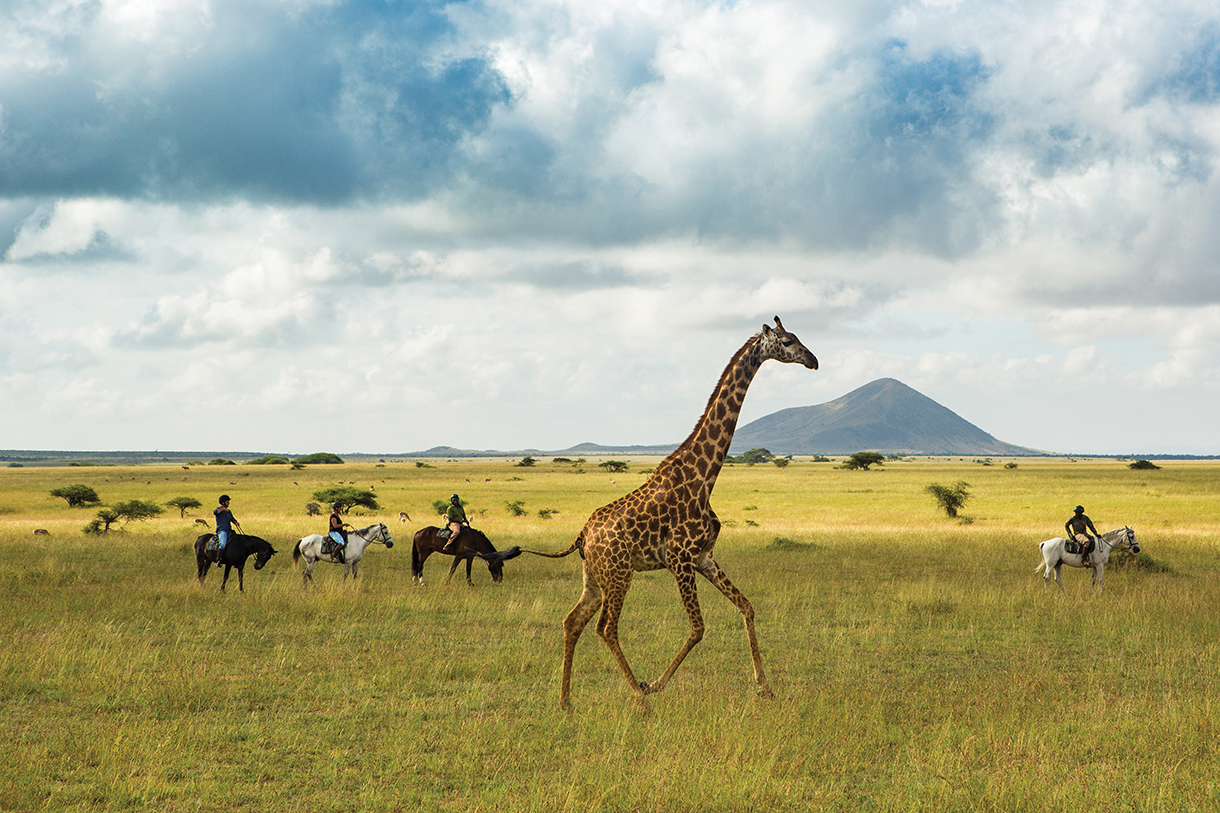
Philanthropy in the Wild: How Safari Tourism is Changing Lives in Africa
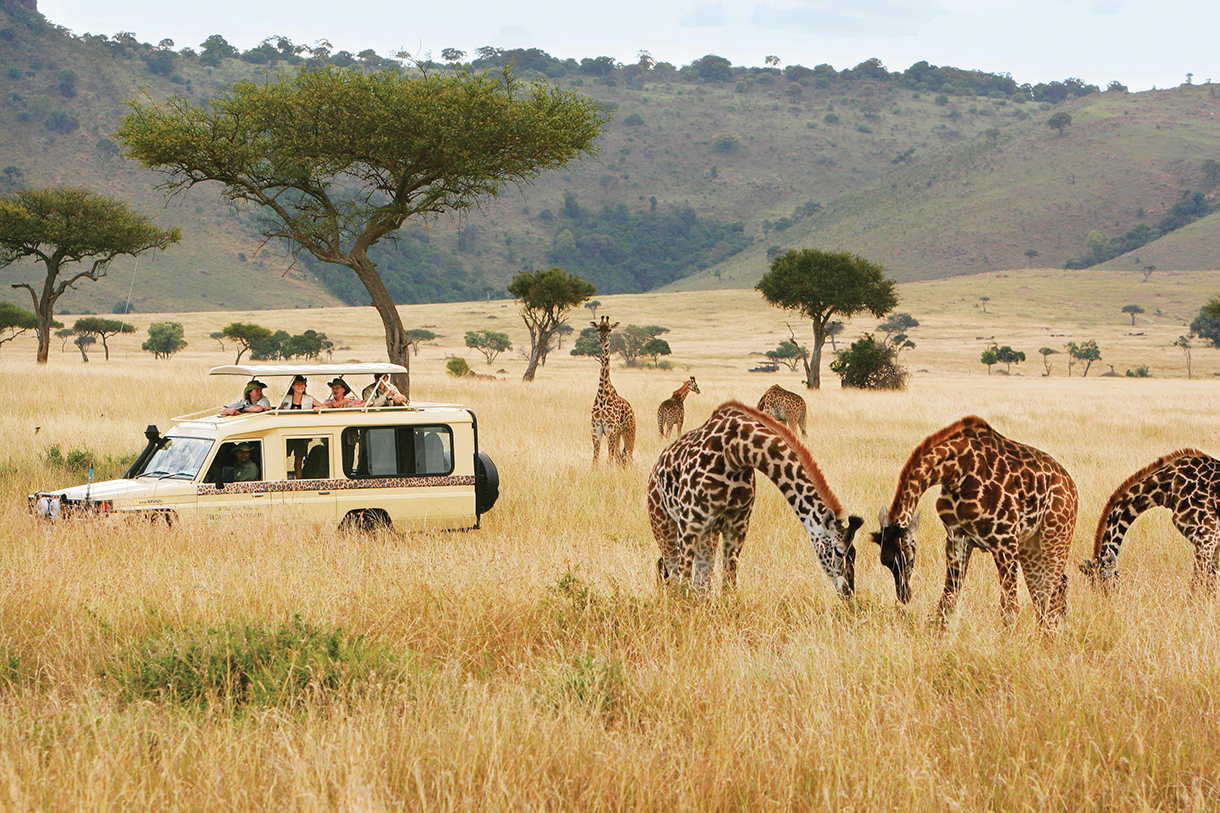
MICATO SAFARIS
There may be no travel more worthy of the overused “bucket list” accolade than an African wildlife safari, a spiritual experience that touches the soul when a leopard, elephant, or giraffe comes into view. But visitors are not the only ones who can come away better off. Doing a safari right impacts the locals, the landscape, and the animals. Multi-award-winning outfitter Micato Safaris (micato.com) has been doing it right for over half a century and, in Kenya, where the company has its roots, Micato has for decades been working closely with like-minded partners deeply involved in conservation and philanthropy.
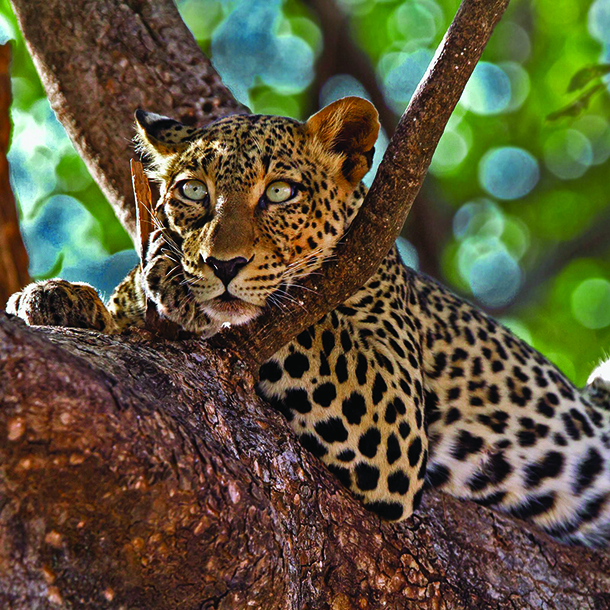
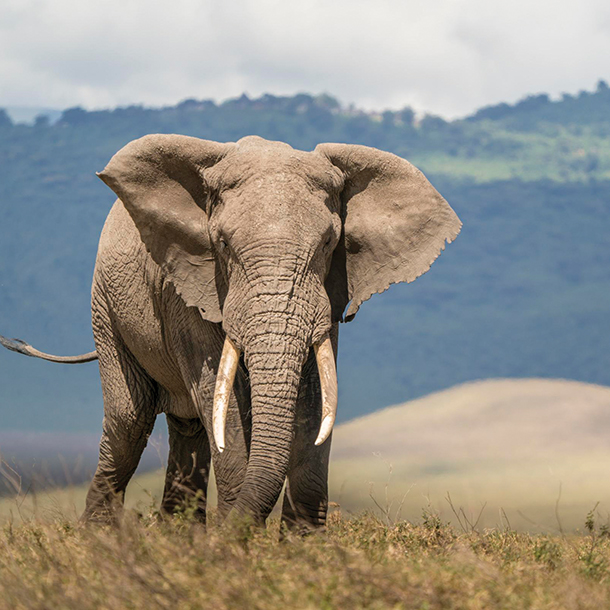
Conservation IN AFRICA
Early safari-goers carried guns, but in the mid-20th century, the small number of hunters were supplanted by a much larger, fast-growing market: shooters on photographic safari. Surging demand led to a new breed of private lodges on large pieces of land, and numerous conservation-minded individuals and organizations stepped in to amass and protect huge properties. “As rifles gave way to film, we saw another shift: enormous tracts of formerly agricultural land converted into wildlife reserves,” says Dennis Pinto, managing director of Micato. “This was a giant leap forward for conservation as well as for the guest experience. On these former ranches, now teeming with wildlife, one can take walking safaris, ride camels and horses, go biking, jog in the bush, engage with anti-poaching tracker dogs, enjoy farm-to-table meals from in-house organic gardens, and so much more that isn’t available in national parks.”
Great Plains Conservation (greatplainsconservation.com) has preserved nearly 1 million acres across Africa as part of its mission of 100-percent sustainable tourism. The group of eco lodges was created by legendary filmmakers, photographers, and conservationists Dereck and Beverly Joubert. They are Explorers in Residence at the National Geographic Society, with whom they co-launched the Big Cats Initiative.
The Jouberts have won eight Emmy Awards and a Peabody and filmed more than 30 Nat Geo movies, including some of the most popular ever. Many were shot on Great Plains preserves, all of which are solar-powered. At their five camps in Kenya, where wilderness was once converted to farms, the Replacement of Shade Program plants a local sapling for every visiting guest, restoring indigenous trees to Kenya’s vast landscape.
Across the properties, sustainability efforts such as biodigesters for food waste, gray water recycling, and elimination of single-use plastics are standard practice. When increased human-lion interaction led to the loss of animals in Northern Kenya, the Big Cats Initiative partnered with local Samburu warriors to educate people and prevent altercations.
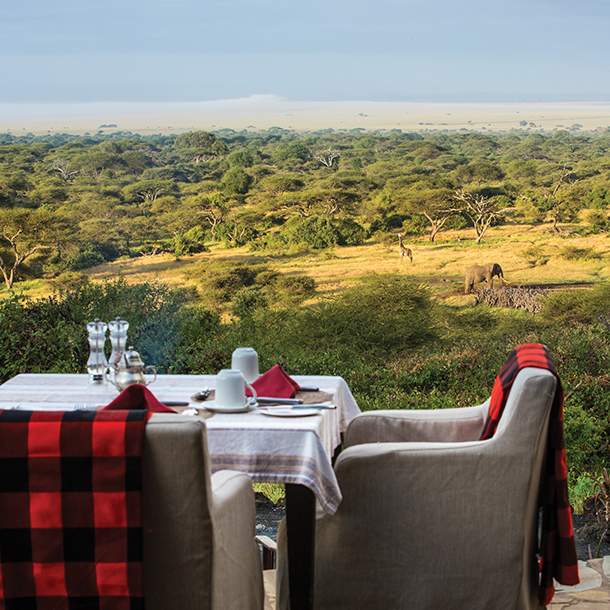
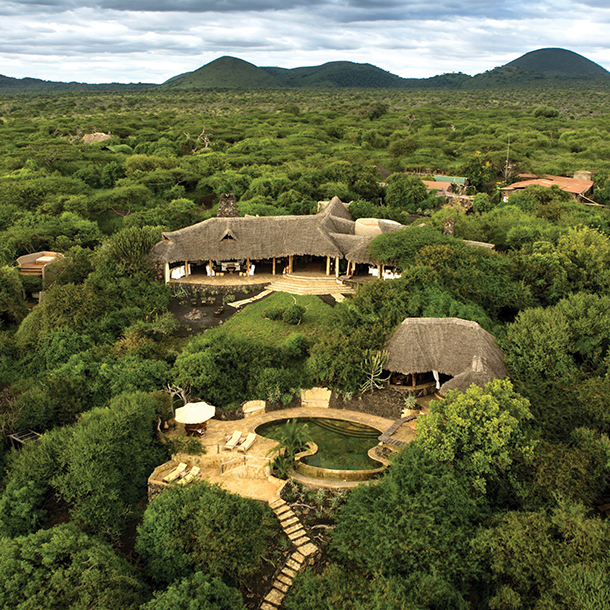
Great Plains’ ol Donyo Lodge (all images this page and opposite) sits on more than a quarter of a million protected acres in Chyulu Hills, the setting for Hemingway’s classic Green Hills of Africa. The Maasai land is communally owned, so game viewing coexists with tribal herdsmen. A partnership with the Big Life Foundation supports the Maasai way of life and as Micato Safaris says, “By simply visiting, we are contributing to the survival of the region’s flora, fauna, and unique local culture.”
Segera Retreat (segera.com) is another luxury lodge on former ranchland. Now the Laikipia National Reserve, it is home to one of the largest elephant herds in East Africa, more than 5,000 strong, and one of the last protected strongholds of the critically endangered black rhino. Segera works with partners such as the Gates Foundation and has a heavy conservation emphasis, from recycling gray water and running on solar power to keeping 300 hives for honey and organic chefs’ gardens for produce. A massive reforestation plan calls for 23 million new trees in the next five years to offset carbon emissions, while substantial investment in anti-poaching units protects wildlife. Both Segera and ol Donyo allow guests to participate in exercises with anti-poaching dog teams, a unique vacation adventure.
Daily excursions in off-road vehicles have long been the backbone of the safari experience, but even this is changing. Electric vehicles are spreading across luxury African camps, alongside new alternatives to game “drives.” Almost all lodges offer walking safaris, while ol Donyo has an extensive horseback safari program, and along with Segera, offers mountain biking. Mara Plains, ol Donyo’s sister camp in the Serengeti, offers hot-air ballooning, an amazing game-viewing alternative, floating silently above massive herds.
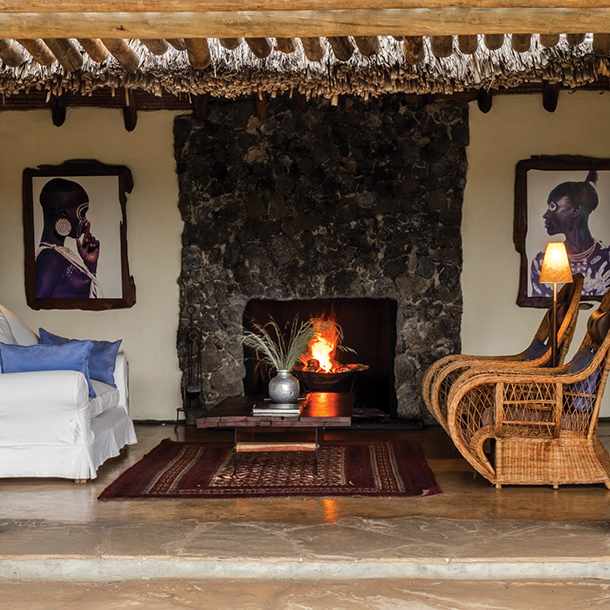
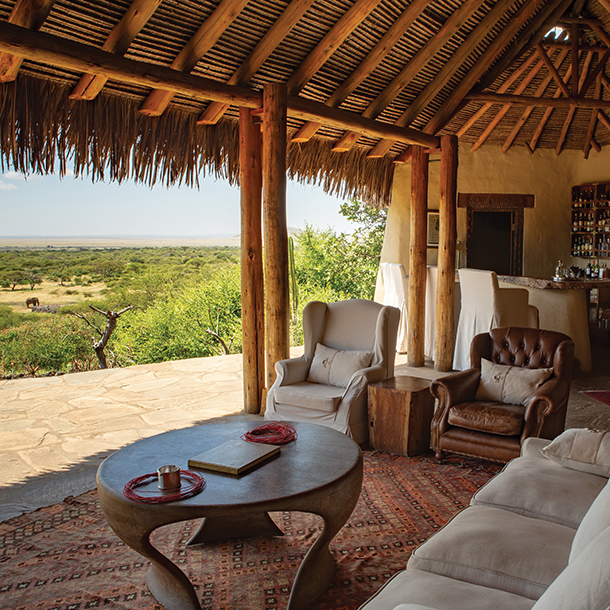
Art and Culture OF THE GREAT PLAINS
The longtime luxury safari camp aesthetic of Teddy Roosevelt–era decor—endless green canvas, wooden campaign chests, and brass telescopes—has slowly given way to more authentic, local styles. Segera was a leading force, as its founder and owner, Jochen Zeitz, CEO and president of Harley-Davidson, is an avid collector of works by African artists, and his passion quickly outgrew the lodge.“Segera Retreat is kitted out with art and fine antiques all through the grounds, sculpture gardens, and galleries, which are brimming with evocative, contemporary African pieces that range from etchings to bronzes to video installations,” says Pinto. “Jochen began accumulating works for his private collection, and this led in part to what would become the Zeitz Museum of Contemporary Art Africa (MOCAA) in Cape Town.”
Many Micato guests arriving in Nairobi begin with a stay at the classic Fairmont The Norfolk or boutique Hemingways Eden. Owners of the former have amassed a contemporary art collection over decades, with many Timothy Brooke paintings sketched on the film set of Out of Africa. Hemingways Eden, which began as the home of fashion designer Anna Trzebinski and her late artist husband Tonio, is full of original paintings, sculptures, and ceramics (see “Home in Nairobi”). Sean Walwyn, Micato’s CEO for East Africa, is an avid African art collector and steers clients with interest to the region’s best artists and galleries—with insider access. At Walwyn’s recommendation, a recent Micato guest acquired two paintings by Peterson Kamwathi, one of Kenya’s most critically acclaimed artists.
But the art on safari is not just for viewing. Increasingly, guests learn about and participate in the making of traditional crafts. Segera maintains a workshop where guests can learn craft skills, stitch traditional fabrics, and make beaded jewelry, a uniquely memorable souvenir. Because of Micato’s commitment to supporting local artists and craftspeople, every safari includes such opportunities, and if the lodges do not have programs, guests visit galleries, markets, or maker workshops.
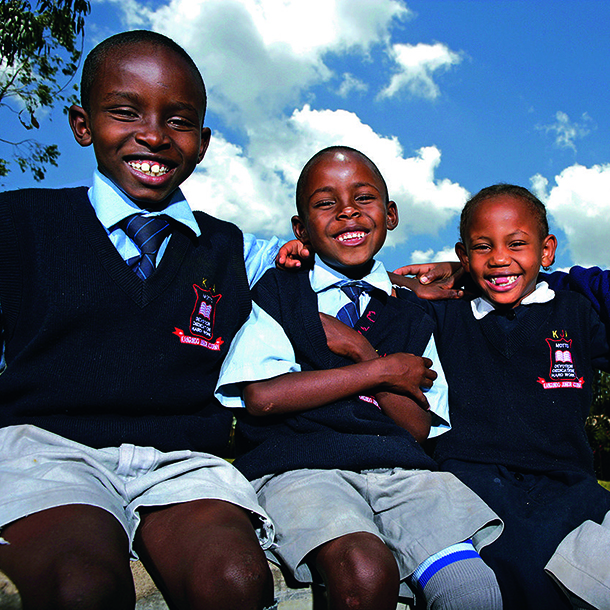
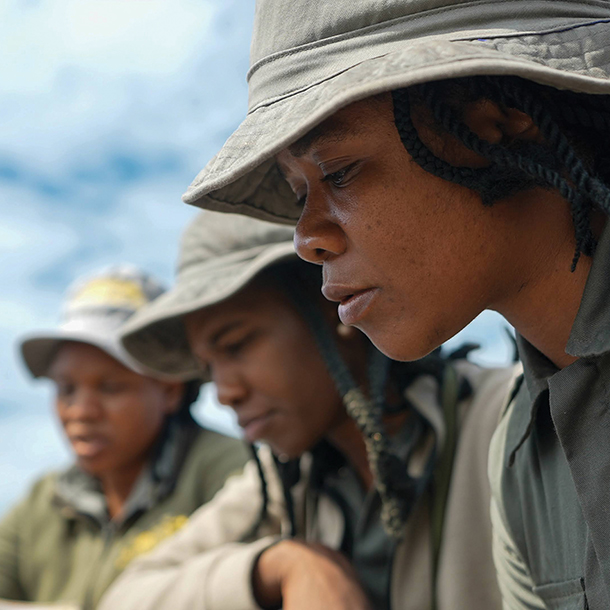
Philanthropy and Society OF THE GREAT PLAINS
Thirty-five years ago, Micato staffer Lorna Macleod was in a Nairobi shopping center when a young boy approached her. He was going from person to person with a note from his headmaster, which said he was an orphan and needed to raise 700 shillings for a school uniform before he could attend. “The boy approached me,” she recalls. “He had only collected 100 shillings. I read the note and handed him the 600 shillings, the equivalent of $15. Tears running down his face, the boy stood there for a moment, said ‘God bless you,’ and dashed away. At that moment, I realized that Micato was an ideal bridge between some of the poorest people on the planet, and some of the wealthiest, our travelers.”
After relaying her experience to company executives, Macleod cofounded AmericaShare (americashare.org), Micato’s charity arm, and is now executive director of it and sister organization Huru International (huruinternational.org). “This encounter set the tone for AmericaShare’s approach,” she explains, “which is to help one child at a time and work with that child as long as possible, so she or he grows and thrives.”
Pinto adds, “AmericaShare has been steadfast in its belief that education is the most powerful tool for sustainable change.” Inspired by the model of TOMS shoes, which pioneered the One for One model of donating a pair for each one sold, Pinto added a program that pays a child’s education costs for every client traveling. AmericaShare also runs computer centers and award-winning libraries.
Affiliated nonprofit Huru was launched to provide reusable sanitary-pad kits to the hundreds of thousands of impoverished teenage girls staying home from school during their periods. Sewn by women and men from underserved communities, nearly 2 million complete Huru kits have been distributed to date, with millions of missed schools days saved. As Macleod notes, “Our guests know that just by virtue of booking their safari with us, they’re enabling a child to go to school through the One for One commitment, but that is just the beginning.” When guests see the impact in person, many are so moved that they make impromptu donations, including classrooms full of computers or commercial sewing machines.
AmericaShare and Huru come back full circle to the ethos of conservation, as they tie to an ongoing effort to place more women in the traditionally male-dominated safari and tourism industry, one of Africa’s best-paying fields. “It is this younger, educated generation who are the future stewards of Africa’s wildlife and conservation,” says Pinto. “The power of conservation education in particular is illustrated beautifully by Team Lioness, an all-female, anti-poaching ranger unit that works in and around Amboseli National Park. It’s rare enough to have female rangers, but rarer still that all the women in this unit are highly educated.”
In this vein, the ZEITZ Foundation helped create The All-Women Anti-Poaching Ranger Academy (zeitzfoundation.org), designed to achieve the highest standards of anti-poaching and security. In March 2019 the first candidates were recruited from Segera’s local communities, providing opportunity to those who had been marginalized. Several classes have graduated and supplied Segera with trained anti-poaching rangers.
Last year, the Great Plains Foundation launched its Female Ranger Program (greatplainsfoundation.com). Cofounder Dereck Joubert says, “This initiative holds equally tremendous significance for gender equality and conservation, the challenging of gender norms, reducing human-wildlife conflict, and building the next generation of local change agents prepared to conserve African wildlife and wild landscapes.”




